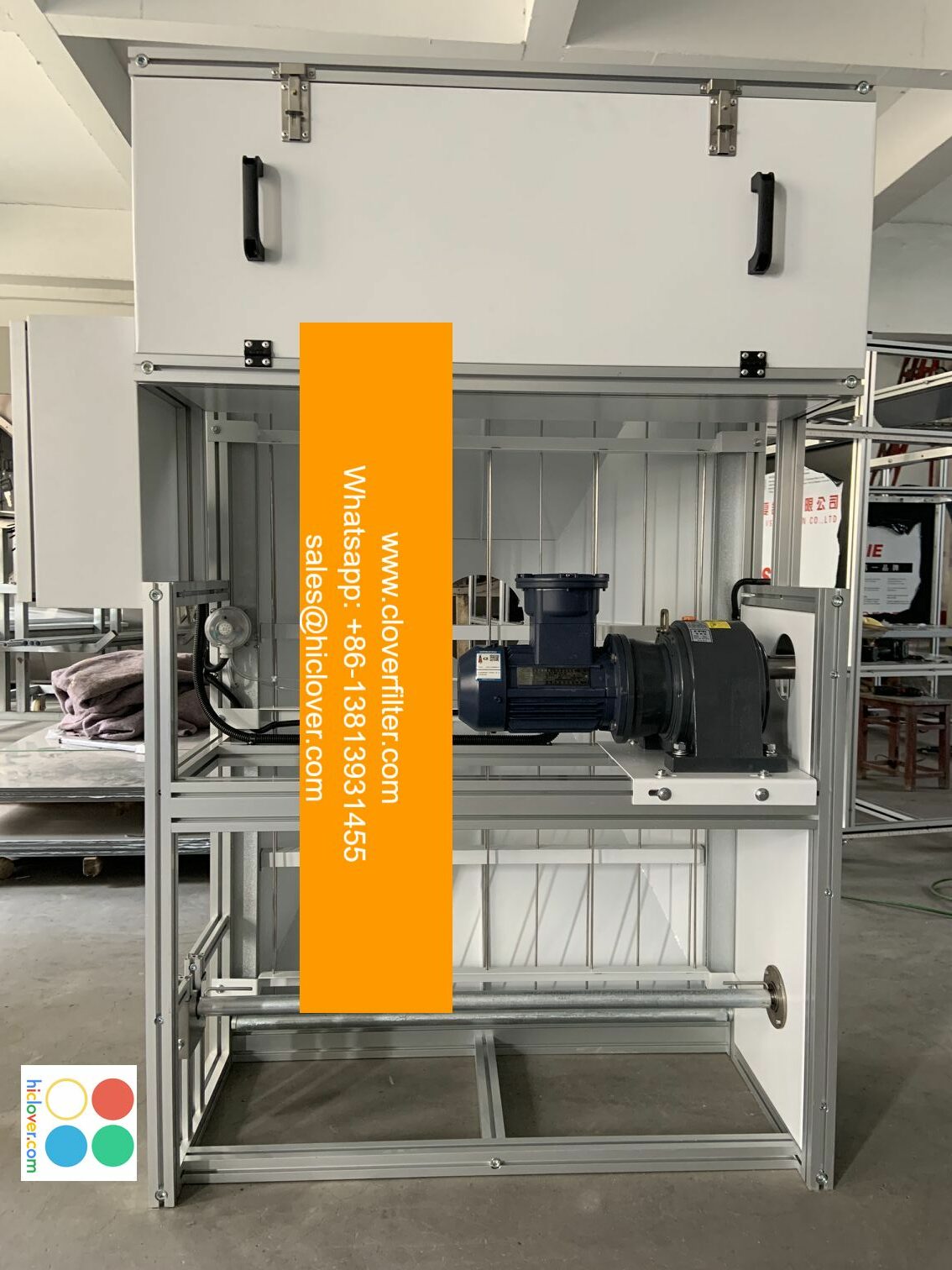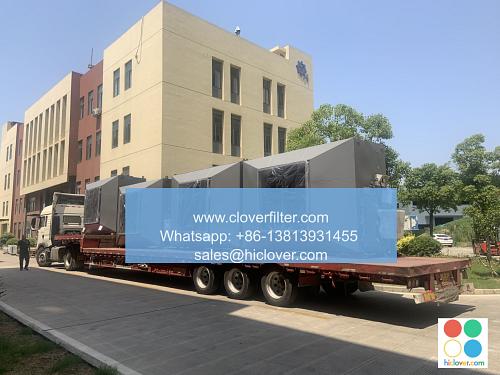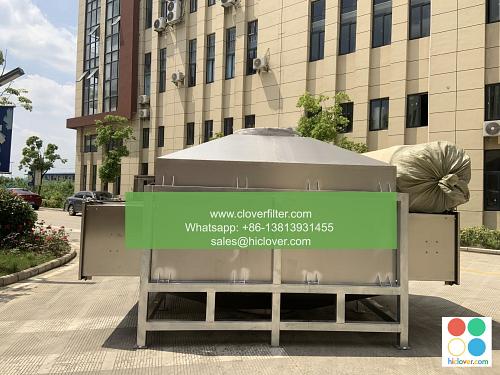Automatic Roll Air Filters in Healthcare: A Review of Benefits

Automatic roll air filters have become an essential component in healthcare facilities, playing a critical role in maintaining indoor air quality and preventing the spread of airborne pathogens. These filters are designed to capture airborne particles, including dust, bacteria, viruses, and other microorganisms, ensuring a safe and healthy environment for patients, staff, and visitors. In this article, we will review the benefits of automatic roll air filters in healthcare settings and discuss their importance in maintaining a clean and hygienic environment.
One of the primary benefits of automatic roll air filters is their ability to improve indoor air quality. Healthcare facilities are prone to airborne contaminants, which can exacerbate respiratory conditions and compromise patient health. Automatic roll air filters can capture up to 99.97% of airborne particles as small as 0.3 microns, including bacteria, viruses, and other microorganisms. This helps to reduce the risk of airborne infections and creates a healthier environment for patients and staff.
Another significant benefit of automatic roll air filters is their ability to reduce maintenance costs. Traditional air filters require regular replacement, which can be time-consuming and expensive. Automatic roll air filters, on the other hand, can be easily replaced with a new filter roll, reducing labor costs and minimizing downtime. Additionally, these filters can be designed to alert maintenance staff when the filter needs to be replaced, ensuring that the air filtration system is always operating at optimal levels.
Automatic roll air filters also play a critical role in reducing the risk of hospital-acquired infections (HAIs). HAIs are a significant concern in healthcare facilities, and airborne pathogens are a common cause of these infections. By capturing airborne microorganisms, automatic roll air filters can help to reduce the risk of HAIs and create a safer environment for patients. This is especially important in areas such as operating rooms, intensive care units, and patient rooms, where patients are more susceptible to infection.
In addition to improving indoor air quality and reducing maintenance costs, automatic roll air filters can also help to increase energy efficiency. By capturing airborne particles and reducing the load on the air filtration system, these filters can help to reduce energy consumption and lower utility costs. This can be especially beneficial in large healthcare facilities, where energy costs can be significant.
Finally, automatic roll air filters can be easily integrated into existing air filtration systems, making them a convenient and cost-effective solution for healthcare facilities. These filters can be designed to meet the specific needs of each facility, taking into account factors such as air flow rates, particle sizes, and maintenance requirements. This ensures that the air filtration system is always operating at optimal levels, providing a safe and healthy environment for patients and staff.
In conclusion, automatic roll air filters are a crucial component in healthcare facilities, providing numerous benefits including improved indoor air quality, reduced maintenance costs, and increased energy efficiency. By capturing airborne particles and reducing the risk of hospital-acquired infections, these filters can help to create a safer and healthier environment for patients, staff, and visitors. As healthcare facilities continue to prioritize patient safety and well-being, the importance of automatic roll air filters will only continue to grow.
Conclusion
In summary, automatic roll air filters are a vital component in healthcare facilities, providing a safe and healthy environment for patients, staff, and visitors. Their ability to improve indoor air quality, reduce maintenance costs, and increase energy efficiency makes them an essential investment for any healthcare facility. As technology continues to evolve, we can expect to see even more advanced air filtration systems that can help to further reduce the risk of airborne infections and create a healthier environment for all.
Frequently Asked Questions (FAQs)
Q: What is the benefit of using automatic roll air filters in healthcare facilities?
A: Automatic roll air filters can improve indoor air quality, reduce maintenance costs, and increase energy efficiency, creating a safer and healthier environment for patients, staff, and visitors.
Q: How do automatic roll air filters reduce the risk of hospital-acquired infections?
A: Automatic roll air filters can capture airborne microorganisms, reducing the risk of HAIs and creating a safer environment for patients.
Q: Can automatic roll air filters be easily integrated into existing air filtration systems?
A: Yes, automatic roll air filters can be designed to meet the specific needs of each facility, making them a convenient and cost-effective solution for healthcare facilities.
Q: How often should automatic roll air filters be replaced?
A: Automatic roll air filters can be designed to alert maintenance staff when the filter needs to be replaced, ensuring that the air filtration system is always operating at optimal levels.


